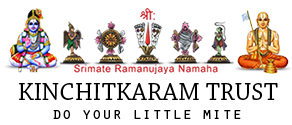ஸ்வாமி! தாங்கள் சொன்னதில் “தவறு” என்று ஒன்றும் இல்லை. அப்படி ஓர் என்னத்தை ஏற்படுத்தியிருந்தால் அடியேனை மன்னிக்கவும்.
I was just expressing my understanding of ‘timepass’ in the way of rephrasing your question.
My understanding is, nobody needs to put any effort to ‘pass’ Time. Time is one thing that is steadily flowing; no one can accelerate or slow down Time.
But how we perceive the passage of Time is relative. If we are engaged in something pleasurable, Time appears to pass very quickly; if we are engaged in something non-pleasurable, then Time appears to pass very very slow and we need to somehow manage to ‘pass’ the time; here is ‘passing time’ means changing our mind’s absorption during that period.
For devotees, because of separation from Krishna, passage of the alloted time during this life is painful. So they engage in ‘Time pass’ by hearing about Him.
For non-devotees, when one form of enjoyment reaches saturation and frustration stage, we need something different; so to overcome this boredom we engage in a variety of ‘Time pass’ activities’ until the new activity reaches saturation-frustration stage, and then we look for a newer new ‘timepass’ activty.
adiyen dasan.

